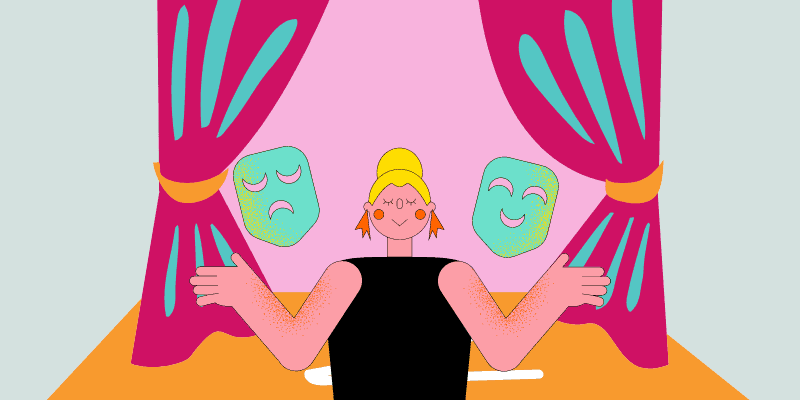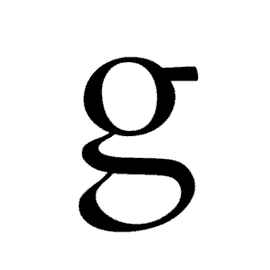Theater (American English) and Theatre (British English) means performing art form that involves live presentations of stories and performances by actors.
When is theater used?
In American English, theater is the preferred spelling for both the art form and the physical place where performances, such as plays, movies, and musicals, take place.
Example sentence
- I'm going to the theater to watch a movie.
More example sentences
- The theater was packed with eager theatergoers waiting for the curtain to rise.
- The actors rehearsed tirelessly to perfect their performances for the upcoming theater production.
- She secured front-row seats for the Broadway theater show she had been eagerly anticipating.
- The theater's acoustics were so exceptional that every note of the musical was crystal clear.
- The historic theater was a magnificent venue with ornate decorations and plush seating.
- The theater troupe received a standing ovation for their outstanding performance of Shakespeare's "Hamlet."
- The theater's backstage area buzzed with activity as the cast prepared for the evening's performance.
- The theater's stage manager coordinated the intricate scene changes during the play seamlessly.
- The local community theater offered acting workshops for aspiring actors of all ages.
- As an avid fan of theater, he collected playbills from all the shows he had attended over the years.
When is theatre used?
In British English, theatre is the commonly accepted spelling for both contexts as well.
Example sentence
- I'm going to the theatre to see a play.
More example sentences
- The theatre was packed with eager theatergoers waiting for the curtain to rise.
- The actors rehearsed tirelessly to perfect their performances for the upcoming theatre production.
- She secured front-row seats for the Broadway theatre show she had been eagerly anticipating.
- The theatre's acoustics were so exceptional that every note of the musical was crystal clear.
- The historic theatre was a magnificent venue with ornate decorations and plush seating.
- The theatre troupe received a standing ovation for their outstanding performance of Shakespeare's "Hamlet."
- The theatre's backstage area buzzed with activity as the cast prepared for the evening's performance.
- The theatre's stage manager coordinated the intricate scene changes during the play seamlessly.
- The local community theatre offered acting workshops for aspiring actors of all ages.
- As an avid fan of theatre, he collected playbills from all the shows he had attended over the years.
Common idioms/phrases
The world of theater/theatre has inspired a variety of idiomatic expressions and phrases in the English language. Here are some common idioms and phrases related to theater:
- Break a leg: This is a traditional way to wish actors good luck before a performance. Saying "break a leg" is considered more superstitious than saying "good luck."
- All the world's a stage: This famous line is from William Shakespeare's play "As You Like It." It means that life is like a play, with different stages or phases.
- The show must go on: This expression is used to emphasize the need to continue with an event or performance despite difficulties or setbacks.
- Steal the show: To "steal the show" means to outperform others and be the most impressive or memorable part of an event or performance.
- In the limelight: Being "in the limelight" means being the center of attention or receiving a lot of public notice, like a performer on stage illuminated by limelight.
- Curtain call: This refers to the moment at the end of a performance when actors come back on stage to acknowledge the audience's applause.
- Upstaging someone: To "upstage" someone means to divert attention away from them, often by being more dramatic or attention-grabbing.
- Play to the gallery: This phrase means to engage in behavior or actions to win approval or support from the crowd or a particular audience.
- Overact/ham it up: To "overact" or "ham it up" means to exaggerate one's performance or emotions, often for comedic effect.
- Drop a curtain on something: This expression signifies the end or closure of something, as if a curtain were falling at the end of a play.
- Behind the scenes: This phrase describes the work and activities that happen out of the public eye, often used to discuss the hidden aspects of a production or event.
- Raise the curtain: To "raise the curtain" means to begin a performance or event. It's often used metaphorically for starting something.
- Stage fright: This term refers to the anxiety or nervousness experienced by performers before going on stage.
- Exit stage left (or right): This phrase, often used humorously, indicates that someone is making a hasty or dramatic departure from a situation, much like a character leaving the stage.
These idioms and phrases reflect the rich cultural influence of theater on the English language, demonstrating how theatrical concepts and expressions have been integrated into everyday speech.
The choice between "theatre" and "theater" ultimately depends on your location and the specific style guide or language conventions you adhere to. Both words refer to the same concept of a place for entertainment or the performing arts. The difference in spelling does not significantly alter their meanings or uses, but it's essential to be consistent with the preferred spelling in your region or context.
Discover more about the AI English proofreader, Engram!

Reference














